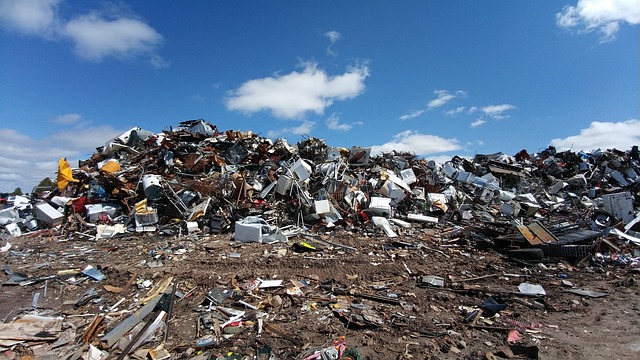EN 15309 Inorganic Elements in Industrial Waste by ICP
The European standard EN 15309:2007 outlines a method for the determination of inorganic elements in industrial waste using Inductively Coupled Plasma (ICP) technology. This method is widely recognized and used in sectors where accurate quantification of trace element concentrations is crucial, such as metalworking, electronics manufacturing, and chemical processing industries.
This testing protocol is particularly important for ensuring compliance with environmental regulations and optimizing the recycling process. By identifying and quantifying key elements like heavy metals (such as lead, cadmium, mercury), rare earth elements, and other essential constituents, this test helps in assessing the suitability of industrial waste for recovery or disposal.
The ICP method used in EN 15309 offers several advantages over traditional methods. It provides high sensitivity, enabling accurate detection down to parts per billion (ppb) levels, which is critical for ensuring that even trace amounts of harmful substances are not overlooked. The technique also allows simultaneous multi-element analysis, reducing the time and cost associated with multiple tests.
The process begins with sample preparation, where industrial waste is crushed or ground into a fine powder to ensure uniformity. This step is crucial as it affects the accuracy of the subsequent analysis. Once prepared, the samples are introduced into an ICP instrument using either direct sampling or after digestion in a suitable acid mixture.
The ICP instrument operates by exciting gaseous elements through radiofrequency energy, causing them to emit light at wavelengths characteristic of their atomic structure. This light is then measured and analyzed to determine the concentration of each element present in the sample. The results are reported against internationally recognized standards such as ISO 17025 for laboratory accreditation.
The importance of this test cannot be overstated, especially given the growing emphasis on sustainable practices and recycling initiatives across Europe and globally. By providing precise elemental data, EN 15309 helps quality managers, compliance officers, R&D engineers, and procurement teams make informed decisions that ensure environmental responsibility while maintaining product integrity.
Key Benefits: Accurate quantification of inorganic elements, optimization of recycling processes, compliance with environmental regulations, precise elemental analysis down to ppb levels.
- Sensitivity: Detection limits as low as 0.1 µg/L for many elements.
- Speed: Simultaneous multi-element analysis reduces testing time and costs.
- Reliability: High repeatability and accuracy in results.
- Sustainability: Assists in the recovery of valuable materials from waste streams.
The use of EN 15309 ensures that industrial waste is managed responsibly, contributing to a more sustainable future. This method plays a pivotal role in industries where trace element analysis is critical for compliance and quality assurance.
Eurolab Advantages
Expertise: As one of the leading laboratories in Europe, Eurolab boasts a team of highly skilled professionals specializing in waste management testing. Our experts are well-versed in international standards and possess extensive experience in conducting complex analytical tests.
Accreditation: Eurolab is accredited to ISO/IEC 17025, ensuring that our services meet the highest quality requirements. This accreditation guarantees that all of our testing processes are rigorous and dependable.
Technology: Equipped with state-of-the-art ICP instruments, we provide accurate and reliable results, which is critical for meeting stringent regulatory standards.
Compliance: We stay up-to-date with the latest EU regulations and directives, ensuring that our clients are always compliant with current laws. Our comprehensive services cover a wide range of waste types, from hazardous to non-hazardous industrial wastes.
Client Support: Eurolab offers personalized service tailored to meet the specific needs of each client. From initial consultation through final report generation, we ensure that our clients receive support every step of the way.
Why Choose This Test
- Regulatory Compliance: Ensures adherence to EU directives and international standards like EN 15309:2007.
- Environmental Responsibility: Helps in the proper management of industrial waste, ensuring minimal environmental impact.
- Resource Recovery: Identifies valuable elements that can be recycled or reused, contributing to sustainability efforts.
- Quality Assurance: Provides accurate data for product quality and consistency.
- Cost Efficiency: By optimizing waste management processes, clients can reduce costs associated with disposal and treatment.
- Data Accuracy: High sensitivity of ICP ensures precise quantification even at trace levels.
The EN 15309 test is essential for industries dealing with industrial waste. It not only aids in the proper management of hazardous materials but also supports sustainable practices by enabling the recovery and reuse of valuable resources. This testing method is a cornerstone for ensuring compliance, enhancing quality assurance, and driving environmental responsibility.
International Acceptance and Recognition
The EN 15309 standard has gained widespread acceptance across Europe and beyond due to its robust methodology and accuracy in detecting inorganic elements. This international recognition is a testament to the reliability of ICP analysis for industrial waste testing.
In countries adhering to European Union regulations, such as Germany, France, and the UK, this test is mandatory for certain types of industrial waste. However, it is also widely used in other regions like North America and Asia, where similar environmental concerns drive the need for precise elemental analysis.
The standard’s acceptance extends not only to governmental bodies but also to private companies committed to sustainable practices. Major corporations often rely on EN 15309 results to ensure they meet their internal quality control standards as well as external regulatory requirements.
International organizations such as the International Organization for Standardization (ISO) and the European Committee for Standardization (CEN) support and promote this standard, further cementing its place in global waste management practices. The recognition of EN 15309 by these bodies ensures that laboratories like Eurolab are at the forefront of reliable testing.
The widespread use of this test underscores its importance in maintaining environmental standards and driving sustainable industrial practices worldwide.





